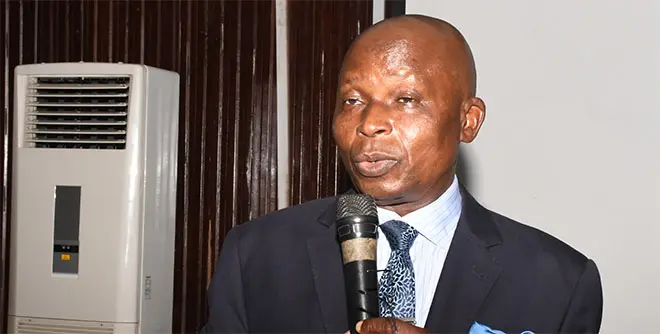Mr. Lateef Fagbemi (SAN) who is the Attorney General of the Nigerian Federation and Minister of Justice, has declared that President Bola Tinubu is determined to strengthen the fight against corruption.
Fagbemi, who made the disclosure in Abuja while speaking at the United Nations International Anti-corruption Day 2023, with the theme: ‘UNCAC at 20: Uniting the World Against Corruption,’ pointed out that the framework for the implementation of the National Anti-Corruption Strategy (NAC) was focused on five pillars which serve as the driving force for both the public and private sectors.
He listed them to include the prevention of corruption; public engagement; campaign for ethical re-orientation; enforcement and sanction as well as recovery and management of proceeds of crime.
‘After a successful election and transition, President Bola Tinubu is determined to strengthen the fight against corruption at all levels and ensure prudent utilisation of resources for sustainable economic growth and development.
‘To ensure effective deliverables, my office has been charged with critical performance indicators which will ensure percentage implementation of the NACS and the coordination of mechanisms involved in the anti-corruption efforts. To this end, I signed a performance bond on November 3, 2023,’ the minister added.
Read Also: Portuguese Prime Minister Steps Down Amid Corruption Probe
Fagbemi, who was represented by the Director of Planning, Research and Statistics at the ministry, Victoria Ojogbane, said the official launch of the NACS 2022-2026 by Tinubu; robust interface with the Governors Forum and activation of the anti-corruption funding framework were some of the activities lined up for immediate implementation.
Also speaking, Orji stated that despite the gains in recent years, the latest Corruption Perception Index (CPI) ranking of Nigeria 154 out of 180 countries clearly showed that the country was still far behind the destination in its fight against graft.
According to him, in the oil, gas and mining sectors and extractive industries generally, corruption remains a major constraint to the realisation of the impacts of the reforms recommended in NEITI’s series of industry reports.
The executive secretary explained that Nigeria was about the only resource-rich country confronted with the peculiar challenges of oil theft, pipeline vandalism, illegal mining and daylight stealing of solid minerals by foreigners with the collusion of Nigerians.
Quoting from its recently-released report, the NEITI boss reiterated that Nigeria lost over 619 million barrels of crude, valued at $46.16 billion or N16.25 trillion between 2009 and 2020, to oil theft alone.
In addition, Orji stressed that Nigeria lost 4.2 billion litres of petroleum products from refineries, valued at $1.84 billion at the rate of 140,000 barrels per day, from 2009 to 2018.
He explained that in the past five years, between 2017 to 2021, Nigeria recorded 7,143 cases of pipeline breakages, resulting in crude theft and product losses of 208.639 million barrels valued at $12.74 billion or N4.325 trillion.
Orji noted that the NEITI reports also disclosed that during the same period Nigeria spent over N471.493 billion to either repair or maintain the pipelines.
Also speaking, the Director of International Narcotics and Law Enforcement Affairs, United States Embassy, Nigeria, Jason Smith, reiterated the country’s commitment to working with the government of Nigeria and international partners to reinforce anti-corruption efforts in the country.

